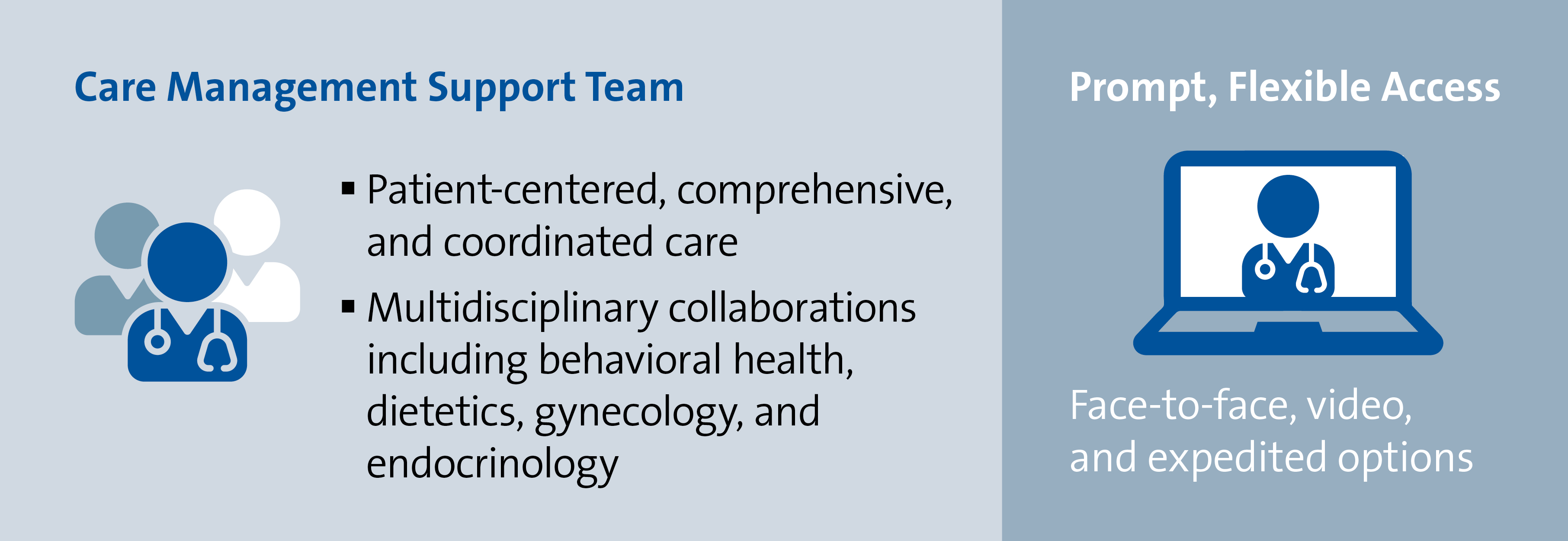Adolescents and young adults are at a pivotal time in their lives, during which health trajectories firmly take hold. A range of complex health issues that intermingle physical, behavioral, and developmental dynamics are common in this age group.
The Duke Adolescent and Young Adult Health Program consists of three adolescent and young adult medicine specialists and a growing care management support team to help patients ages 12 to 26 with issues related to sexual and reproductive health, behavioral health, chronic illnesses, and health behaviors.
Duke adolescent and young adult medicine specialists — Richard Chung, MD, Naomi Duke, MD, PhD, and Charlene Wong, MD, MSHP — care for the unique needs of this patient population.
To refer a patient or request a consultation, call 919-620-5333.
Amplified Challenges
“The COVID-19 pandemic has amplified the challenges young people typically face many times over,” says Richard J. Chung, MD, adolescent and young adult medicine specialist. “Particularly prominent are the behavioral health impacts of the chronic stress the pandemic brings and how it’s undermining the foundations of learning, development, and socialization.”
Chung emphasizes that the routines of school, activities, and social engagements are essential for youth as they traverse the developmental stages of adolescence, and the pandemic is compromising all of those areas.
“As a result, we’ve seen a substantial rise in mood disorders and anxiety, as well as substance use, eating disorders, and suicidality,” he says. “In addition, we continue to see significant sexual and reproductive health problems, increases in obesity and its consequences, and complex challenges faced by youth with chronic conditions such as diabetes, congenital heart disease, and sickle cell disease.”
Clinical Issues
Common issues that the Adolescent and Young Adult Health Program focuses on include:
Sexual and Reproductive Health
• Gender health issues
• Sexually transmitted infections
• Contraceptive management
• Menstrual issues
• Health needs of pregnant or parenting teens
• Health needs of sexual minority youth
Behavioral Health
• Substance use
• Eating disorders
• Anxiety, depression, ADHD
• School problems, intellectual/developmental disability
Chronic Illnesses
• Health care transition/medical complexity
• Treatment adherence
• Diagnostic dilemmas, including somatic symptom disorders
Health Behaviors
• Cardio-metabolic risk and advanced obesity management
• Adolescent risk behaviors
• Violence and injury prevention
Here to Help
The program has recently expanded its telehealth offerings and offers prompt and flexible access for teens that accounts for their busy schedules and the broad geographic reach of Duke.
Chung notes that the team is eager to collaborate with referring providers in whatever capacity is most useful to youths and their families, whether it’s a one-time assessment or a longitudinal partnership.
“Whatever the circumstances, we always seek to provide patient-centered, comprehensive, and coordinated care,” says Chung.
